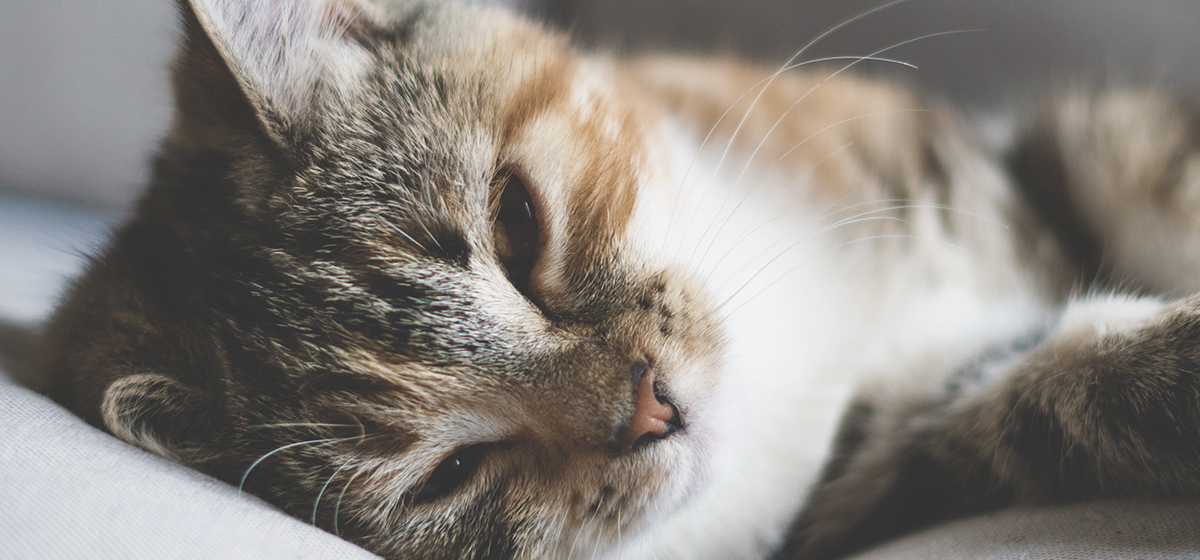Any cat parent will tell you that senior cats are wonderful companions and make excellent cuddle partners. But as your feline friend ages, their needs will change and they’ll require extra love and care to stay healthy.
What once was a rambunctious kitty is now older and beginning to show subtle signs of ageing –often referred to as ‘slowing down.’ Cats mature between 7 to 10, become officially old at around 11, and geriatric around 15 years. It’s important to recognize that senior cats have entirely different needs.
Caring for your ageing cat takes extra time and effort. You may need to make changes around the house and their everyday routine. We’ve compiled a few helpful tips to increase your cat’s quality of life as they age.
Change their diet
A proper diet means feeding the right food at the appropriate amount. As cats get older, their bodily function and nutritional needs will change. They often become thinner, losing both fat and muscle mass. Their system now makes more effort to digest and absorb nutrients, particularly fat and protein.
High quality and easily digestible protein from sources like chicken is beneficial for senior cats along with a diet that’s low in sodium and phosphorus. Senior cats are prone to kidney problems as they age so those with chronic kidney disease should go for a kidney support diet. Food with glucosamine and/or fatty acids such as DHA is also ideal, especially for senior cats with mobility issues. Gradually transition to avoid stomach issues. If you’re unsure of how to begin, your vet can help guide you on the most suitable diet for your senior cat.
Senior cats are also prone to obesity. Be mindful of the extra weight that puts more pressure on your cat’s joints.
Keep them hydrated

Staying hydrated is incredibly vital for senior cats. Water intake keeps organs functioning properly. It supports a healthy urinary tract and helps the kidneys flush out toxins. Cats can be picky with water, so it’s best to encourage them to drink enough. Getting your cat hydrated is just as important as feeding them proper nutrition.
To encourage water consumption, give your senior cat easy access to their water bowls. Don’t forget to consider your senior cat’s personal preference in water (cool, warm, etc) and to use their favorite water bowl if they have one.
Place them in areas they frequent and always keep the bowl fresh and wash every after use. A drinking fountain is also an excellent way to entice your senior cat to drink. Cats are keener on flowing water than a stagnant one. If you suspect that your cat is dehydrated, reach out to your veterinarian.
Help with their grooming and hygiene
Cats are fastidious groomers but your senior cat may struggle to groom themselves as much as they used to. A loss in mobility or health issues may make it difficult for them to reach certain areas of their body. Help maintain their coat in good condition with gentle brushing, trimming their fur, or bathing them in lukewarm water.
The claws of an ageing feline can become thick and brittle and may require more frequent clipping. You can trim them on your own or professionally to ensure no overgrown nails could cause them pain.
It’s also important to look after your senior cat’s teeth and gums. Poor dental hygiene can put them at risk and cause damage to other organs. Brush their teeth daily at home or talk to your vet about maintaining good dental health for senior cats.
Keep them moving and active

It’s sad to see our cats become less active as they age. No more sudden swinging from drapes or chasing laser pointers! However, it’s vital that they remain active for good health, just not with vigorous exercise as it can potentially injure them.
Make time for gentle play to get your senior cat’s joints moving and increase blood flow throughout the body. Use catnip, feathers on strings, or soft toys you can toss to get them moving.
But don’t forget their mental health. Mental stimulation is crucial for preventing cognitive decline. Food games will help stimulate their mind to keep it active and sharp.
Take your senior cat to regular visits and exams with your trusted veterinarian since it’s best to detect health problems early. Senior cats need your love, compassion, and attention. Give them extra care and cherish every moment together.
